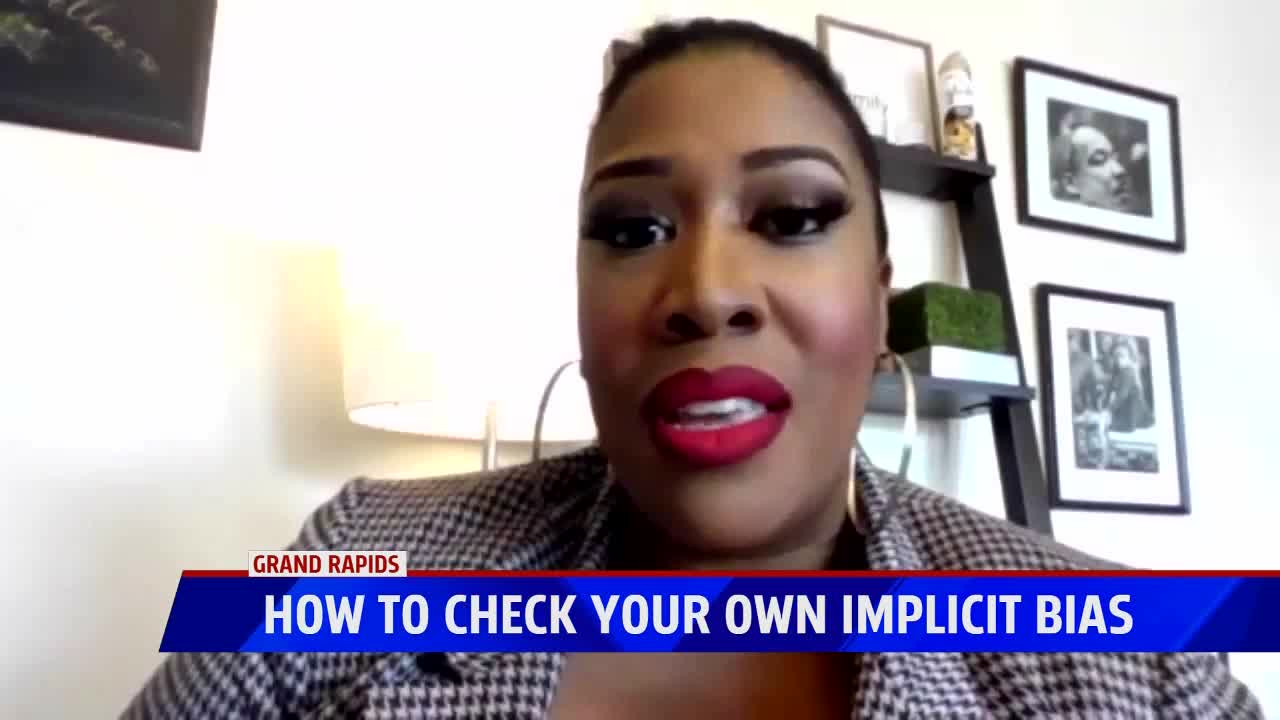GRAND RAPIDS, Mich. — In the wake of what some are calling a “Racism Revolution,” implicit bias is a phrase we are reading and hearing about more.
Latesha Lipscomb works with Amplify GR, a non-profit that helps create equal opportunities in West Michigan neighborhoods.
Lipscomb says implicit bias is nothing new.
“We as people, we have got to stop with all of the implicit bias," Lipscomb said.
"I think a lot of people don't understand that implicit bias is really about an attitude, right? It's something that you kind of hold with you. It's those stereotypes that affect our understanding, our actions, and our decisions."
Acknowledging you have implicit bias is the first of three steps in growing.
“It's that honoring, and that recognition that we are perfectly imperfect,” Lipscomb said.
Once you’ve addressed your implicit bias, your second step is to ask questions, learn! Engage in meaningful conversations.
Lipscomb and her 8-year-old son have attend local local Black Lives Matter protests, where she encourages him to ask questions and work through his own implicit bias.
You can practice this second step of addressing implicit bias by talking to friends who have different ethnic backgrounds than yourself.
“I would start with asking, ‘How are you feeling today? How are you dealing with all of this? What are you thinking?’ And I, I say that because I believe that all people essentially just want to be heard," she said.
"You don't have to agree with me. We could have two totally different perspectives. The most powerful conversations are the ones that happen when you're in a brave space, and you feel like you can be open and honest with the person and exchange in that positive dialogue.”
The third step in working through your implicit bias is to educate yourself.
“Don't count on your black friends to educate you, right now black people are tired,” Lipscomb said.
“I think one of the things that white people can do is be committed to learning, doing the research, figuring it out, watching the documentaries”
Great options to educate yourself include:
- 13th on Netflix which analyzes the criminalization of African Americans in the U.S.
- “A City Within a City” by Todd E. Robinson which examines the civil rights movement and experiences of black people specifically in Grand Rapids.
- Just Mercy based on the life work of Civil Rights Attorney Bryan Stevenson which is streaming free throughout June.
Lipscomb and some of her friends have compiled an incredible list of educational resources from movies to articles, and podcasts. Click here to check it out.
What you choose to consume will effect your future implicit bias.
“Now is the time in history to put the focus on Black Lives Matter, because the truth is that black lives don't matter to some people at all. So we have to unite and recognize that that has been what people have been experiencing for the last 400 years. However, now you're seeing worldwide, people are saying, ‘We will not stand for this'." Lipscomb said.





